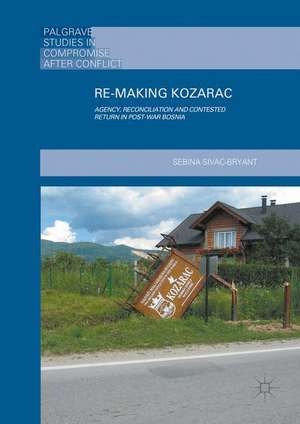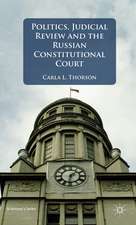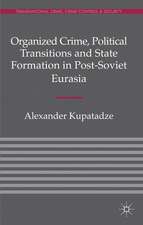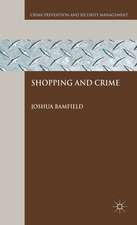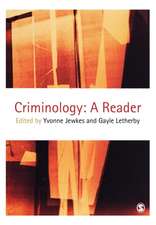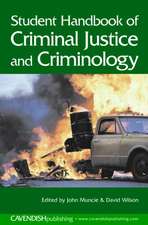Re-Making Kozarac: Agency, Reconciliation and Contested Return in Post-War Bosnia: Palgrave Studies in Compromise after Conflict
Autor Sebina Sivac-Bryanten Limba Engleză Hardback – 2 iun 2016
This book explores agency, reconciliation and minority return within the context of ethnic cleansing in Bosnia. It focuses on a community in North-West Bosnia, which successfully reversed the worst episode of ethnic cleansing prior to Srebrenica by fighting for return, and then establishing one of the only successful examples of contested minority return in the town of Kozarac. The book is a result of a longitudinal, decade-long study of a group of people who discovered a remarkable level of agency and resilience, largely without external support, and despite many of the people and institutions who were responsible for their violent expulsion remaining in place.
Re-Making Kozarac considers how a community's traumatic experiences were utilised as a motivational vehicle for return, and contrasts their pragmatic approach to local compromise with the ill-informed and largely unsuccessful international projects that try to cast them as powerless victims. Importantly, the book offers critical reflections on the interventions of the trauma and reconciliation industries, which can be more harmful than is currently realised. It will be of great interest to scholars of criminology, anthropology and international relations.
| Toate formatele și edițiile | Preț | Express |
|---|---|---|
| Paperback (1) | 382.57 lei 6-8 săpt. | |
| Palgrave Macmillan UK – 30 mai 2018 | 382.57 lei 6-8 săpt. | |
| Hardback (1) | 387.75 lei 6-8 săpt. | |
| Palgrave Macmillan UK – 2 iun 2016 | 387.75 lei 6-8 săpt. |
Din seria Palgrave Studies in Compromise after Conflict
- 18%
 Preț: 727.80 lei
Preț: 727.80 lei -
 Preț: 332.14 lei
Preț: 332.14 lei -
 Preț: 380.63 lei
Preț: 380.63 lei - 15%
 Preț: 642.03 lei
Preț: 642.03 lei -
 Preț: 387.20 lei
Preț: 387.20 lei - 15%
 Preț: 640.06 lei
Preț: 640.06 lei - 18%
 Preț: 953.20 lei
Preț: 953.20 lei - 18%
 Preț: 783.50 lei
Preț: 783.50 lei - 18%
 Preț: 730.35 lei
Preț: 730.35 lei - 18%
 Preț: 730.65 lei
Preț: 730.65 lei - 18%
 Preț: 789.83 lei
Preț: 789.83 lei - 15%
 Preț: 591.79 lei
Preț: 591.79 lei - 15%
 Preț: 527.79 lei
Preț: 527.79 lei - 15%
 Preț: 697.15 lei
Preț: 697.15 lei - 15%
 Preț: 528.13 lei
Preț: 528.13 lei - 15%
 Preț: 582.63 lei
Preț: 582.63 lei - 5%
 Preț: 1286.08 lei
Preț: 1286.08 lei - 15%
 Preț: 636.63 lei
Preț: 636.63 lei - 18%
 Preț: 783.50 lei
Preț: 783.50 lei - 15%
 Preț: 640.06 lei
Preț: 640.06 lei - 18%
 Preț: 725.61 lei
Preț: 725.61 lei -
 Preț: 319.81 lei
Preț: 319.81 lei - 15%
 Preț: 640.06 lei
Preț: 640.06 lei
Preț: 387.75 lei
Nou
Puncte Express: 582
Preț estimativ în valută:
74.21€ • 77.19$ • 61.26£
74.21€ • 77.19$ • 61.26£
Carte tipărită la comandă
Livrare economică 14-28 aprilie
Preluare comenzi: 021 569.72.76
Specificații
ISBN-13: 9781137588371
ISBN-10: 1137588373
Pagini: 210
Ilustrații: XVII, 214 p. 19 illus. in color.
Dimensiuni: 148 x 210 x 19 mm
Greutate: 0.41 kg
Ediția:1st ed. 2016
Editura: Palgrave Macmillan UK
Colecția Palgrave Macmillan
Seria Palgrave Studies in Compromise after Conflict
Locul publicării:London, United Kingdom
ISBN-10: 1137588373
Pagini: 210
Ilustrații: XVII, 214 p. 19 illus. in color.
Dimensiuni: 148 x 210 x 19 mm
Greutate: 0.41 kg
Ediția:1st ed. 2016
Editura: Palgrave Macmillan UK
Colecția Palgrave Macmillan
Seria Palgrave Studies in Compromise after Conflict
Locul publicării:London, United Kingdom
Cuprins
Introduction.- Chapter 1. The Army of the Dispossessed.- Chapter 2. Return.- Chapter 3. A Community of Mourners: Collective and Personal Rituals of Loss.- Chapter 4. Omarska.- Chapter 5. KOZARAC.BA: Online Community as a Network Bridge.- Chapter 6. Economic Sustainability in a Land of Corruption.- Conclusion. On Return as Redress.
Recenzii
“Re-Making Kozarac fills a significant gap in the scholarship about post-war Bosnia-Herzegovina where, despite the profusion of academic studies about the political system, reconciliation and victimhood, case studies focusing on the grass-roots community level remain scarce. … it offers valuable lessons for researchers as well as practitioners in the fields of post-conflict peacebuilding and transitional justice as it shakes ingrained assumptions about victimhood, trauma and reconciliation.” (Sarah Correia, LSE Review of Books, blogs.lse.ac.uk, February, 2017)
“Sebina Sivac-Bryant’s anthropological study focuses on the postconflict society in Bosnia and Herzegovina. Specifically, the author reconstructsthe return process of Bosniaks to their former hometown Kozarac. … Sivac-Bryant makes an important contribution to the understanding of postconflict societies. … she has succeeded in compiling a very relevant work on postconflict societies.” (Manuela Brenner, Südosteuropa, Vol. 65 (4), 2017)
Notă biografică
Sebina Sivac-Bryant is an anthropologist specialising in human responses to challenging situations. Born in Kozarac, Bosnia-Hercegovina, she lived in Zagreb, Limerick and London after being expelled from her home town in 1992. She holds a PhD in Social Anthropology from University College London, UK.
Textul de pe ultima copertă
This book explores agency, reconciliation and minority return within the context of ethnic cleansing in Bosnia. It focuses on a community in North-West Bosnia, which successfully reversed the worst episode of ethnic cleansing prior to Srebrenica by fighting for return, and then establishing one of the only successful examples of contested minority return in the town of Kozarac. The book is a result of a longitudinal, decade-long study of a group of people who discovered a remarkable level of agency and resilience, largely without external support, and despite many of the people and institutions who were responsible for their violent expulsion remaining in place.
Re-Making Kozarac considers how a community's traumatic experiences were utilised as a motivational vehicle for return, and contrasts their pragmatic approach to local compromise with the ill-informed and largely unsuccessful international projects that try to cast them as powerless victims. Importantly, the book offers critical reflections on the interventions of the trauma and reconciliation industries, which can be more harmful than is currently realised. It will be of great interest to scholars of criminology, anthropology and international relations.
Caracteristici
One of the ?Evening Standard’s best books of 2016
